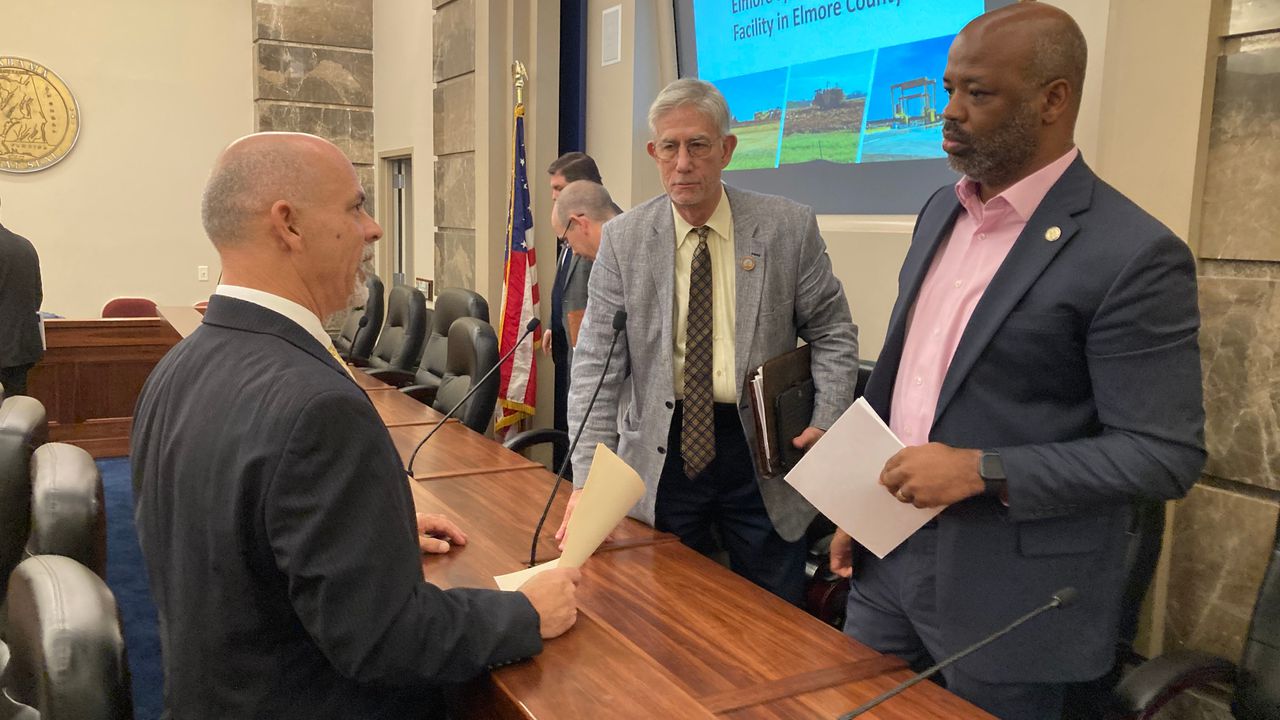Commissioner says nitrogen execution process will be ready this year
Alabama Department of Corrections Commissioner John Hamm said today he expects the ADOC to have a protocol ready for nitrogen hypoxia executions this year.
“There should be a protocol ready,” Hamm said.
Hamm did not give any specifics. He made the comment in response to a reporter’s question after a meeting of the Legislature’s prison oversight committee this afternoon at the Alabama State House.
Executions were not a topic at the oversight committee meeting, where Hamm and other officials answered questions about prison construction, a staffing shortage, prison contraband, changes in the state’s “good time” policy, and other topics.
The Alabama Legislature approved a bill to allow executions by nitrogen hypoxia in 2018, envisioning the method as an alternative to lethal injection. Oklahoma and Mississippi have also authorized nitrogen executions but no state has ever carried one out.
Alabama has released little information about how nitrogen executions would work. The expectation is that the inmate would breathe only nitrogen and die from oxygen deprivation.
The state gave death row inmates a limited amount of time in 2018 to choose the nitrogen method instead of lethal injection. That has become a factor in lawsuits filed by death row inmates.
Inmate Alan Eugene Miller sued the state to block his execution by lethal injection, claiming that he requested nitrogen hypoxia. A federal judge ruled that Miller’s claim was credible and issued an order blocking the state from executing Miller by lethal injection. The U.S. Supreme Court overturned that order and allowed Miller’s execution by lethal injection to proceed on Sept. 22. But the state called off the execution that night because of difficulty in accessing Miller’s veins.
In November, the state reached a settlement in Miller’s lawsuit and agreed not to try again to execute him by lethal injection.
Hamm’s comment today was not the first to indicate the state was getting close to having a nitrogen hypoxia method ready. Before the attempt to execute Miller by lethal injection in September, the ADOC said in a statement it had completed many of the preparations necessary for nitrogen hypoxia but was not yet ready.
In November, the state called off the lethal injection of Kenneth Eugene Smith because of difficulty accessing his veins. The state’s problems in carrying out executions prompted Gov. Kay Ivey to call for a moratorium on executions to allow a review of how the procedure is being done.
In January, the Alabama Supreme Court granted Ivey’s request to change the way execution orders are written to allow more time to carry out the procedure. The new rule allows executions to be carried out within a time frame set by the governor instead of confining them to a single day.
Related: Airgas refuses to supply nitrogen for Alabama executions
